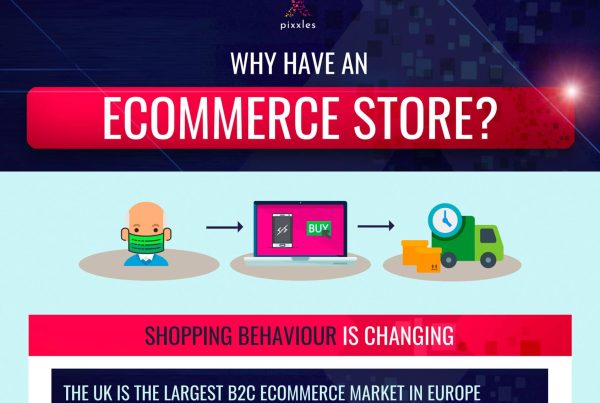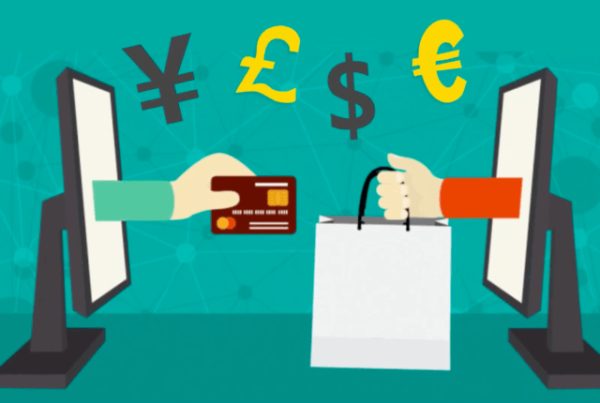There are around 60 million credit cards in the United Kingdom, and they are used to process over 370 million transactions every month.
Furthermore, those numbers are increasing as UK shoppers become increasingly reliant on contactless payments and online shopping. Also read why it’s important to have an ecommerce store.
As credit card use becomes more prevalent, it’s important for online and offline businesses to provide secure and convenient payment processing solutions. In the following guide, we will take a closer look at these solutions, answering questions such as:
- How does credit card processing work?
- What kind of features do these eCommerce solutions have?
- What payment processing options are available?
- How does an eCommerce payment gateway work?
- What are the best payment processing solutions?
How does credit card processing work?
The very first online transaction occurred on August 12, 1994, with two friends using secure data encryption software to process the sale of a Sting CD. It was a momentous moment that led the New York Times to declare that the “Internet is Open.”
Since then, the principles of eCommerce have remained the same. The transactions need to be fast, simple, accessible, and secure.
Of course, modern credit card processing is vastly more complex than those early encrypted exchanges, and it is used to buy a lot more than music, films, or food.
The process begins when a customer adds items to their shopping cart and then clicks “checkout.”
There are two sides to the process: the customer and the merchant. But each side involves multiple parties:
- Customer
-
- Credit Card Network: The network provided by the card issuer, such as MasterCard or Visa.
-
- Issuing Bank: The bank that issued the card.
- Merchant
-
- Payment Processor: The company that processes the transaction and makes the necessary connections.
-
- Payment Gateway: A secure platform through which the encrypted data is sent, and the payments are authorised.
-
- Acquiring Bank: The merchant’s bank. This is where the customer’s money is sent.
The actual process contains three steps:
- Submission: The customer presents their credit card information. At a physical retail location, they will swipe or tap their card at a point-of-sale terminal. For eCommerce solutions, credit card details are entered into relevant sections of a checkout page.
- Authorisation: The merchant requests payment from a credit card processor, which then seeks authorisation from the credit card network and issuing bank. Details are checked to ensure the transaction is legitimate and the necessary funds are available, and then the payment is accepted or denied.
- Funding: If the payment is accepted, authorisation information is sent back down the line and a payment request is made. The money is then deposited into the acquiring bank.
It is a multi-step, multi-layered, and highly secure process, but it all happens quickly and automatically, and it provides guarantees to both parties.
What are the benefits of credit card processing?
eCommerce sites benefit from the speed, automation, and security of credit card processing solutions. They can guarantee that the funds are acquired legally, the payments are processed securely, and the risk of a chargeback resulting from a fraudulent transaction is minimal.
But there are indirect benefits, as well.
As noted at the outset of this guide, there are more than 60 million credit cards in the UK, and they are used to process billions of annual payments.
That adds up to a lot of purchase-ready customers keen to spend their money on whatever product or service a business is selling.
Online businesses that aren’t adequately prepared for this eCommerce era risk being left out.
Customers do not make allowances anymore. If a business cannot accommodate their need to pay with a credit card, they won’t simply put it back in their purse/wallet and then see what other solutions are accepted. They will look elsewhere.
Credit card processing, therefore, allows businesses to accommodate millions of UK consumers who want to use their credit cards for online payments.
Merchant and business accounts make it possible to accept credit card transactions
The traditional—and often best—way to accept credit card payments is to open a merchant or business account.
A merchant account is a specific type of bank account that allows a business to accept payments without the need for a payment service provider (PSP).
A PSP is usually the preferred option for small businesses processing very few payments. The fees are higher, and they have less control, but it is a simpler option.
A merchant account is more suitable for medium and large businesses. It lets businesses negotiate their own fees based on how many transactions they process, and it can save them a lot of money overall.
Credit card payment gateway
The easiest way to process credit card payments online is to work with a third-party payment processor like Pixxles. We can provide you with the means to transact securely and ensure your customers have a simple, fast, convenient, and secure way to pay.
When you open a Pixxles account, you will be given a business bank account that makes it easier to process credit card payments. It is an all-in-one solution for businesses across all industries. If you process payments online (or want to start) then you can benefit from a partnership with Pixxles.
For more information, check out the following guide: Why Pixxles?
How to choose your credit card processing solution
Which credit card processing solution is best for you and your business? There are lots of options out there and most of them provide a reputable, secure, and accessible service. Finding one that best suits your needs is a case of weighing up the pros and cons and getting answers to the following questions:
– What features does the service offer?
What features does the service provide? Does it have what you need?
Don’t simply assume that all credit card processing services are the same and you simply need to choose the cheapest or best-known. As with any other type of service, there are many elements to consider.
– What level of customer support can I expect to receive?
The quality and promptness of customer support is key to any service.
Will they be there when you need them? Can you contact them outside of business hours when you have an emergency that needs a rapid resolution? Will you be kept waiting for days or can they resolve your issues immediately?
Never underestimate the value of good customer service, as it will make all the difference during those times of crisis.
– How much can I expect to pay in fees based on transactions?
At Pixxles, we pride ourselves on our highly competitive payment processing pricing, with both fixed and custom options available. But you won’t find the same low prices across the industry.
Look for a credit card processing solution that meets your needs without overcharging you. Those transaction costs will eat into your margins, and if your margins are low to begin with, every percentage and every penny counts.
For more info on pricing, including a custom quote tailored to your business, contact us today.
– How will this improve and enhance my business?
Whenever you are investing in a product or service for your business, you must ask yourself what kind of benefits it will bring.
Will it improve your business? If so, how? A good credit card processing solution can give you access to a wider range of customers, enhance your payment processing, and ensure the money is there when you need it.
Credit card processing FAQs
What are the different payment methods in eCommerce?
Credit cards are just one of the payment methods that an online business can accept. Customers in the UK also make a lot of payments with debit cards and e-wallets, the latter of which are provided by third-party payment services like PayPal, Klarna, and Skrill.
What do I need to have in place to accept credit card payments?
At the most basic level, you need a website that is secured by an SSL and has the necessary infrastructure to process secure payments. You will also need products/services and the means to process/ship them. Beyond that, it’s all about the payment processing service and the bank into which those funds are deposited.
How does an eCommerce payment gateway work?
An eCommerce gateway securely connects the payment processor to the merchant account provider, allowing for the exchange of information and funds. They are a key part of the online payment process.





